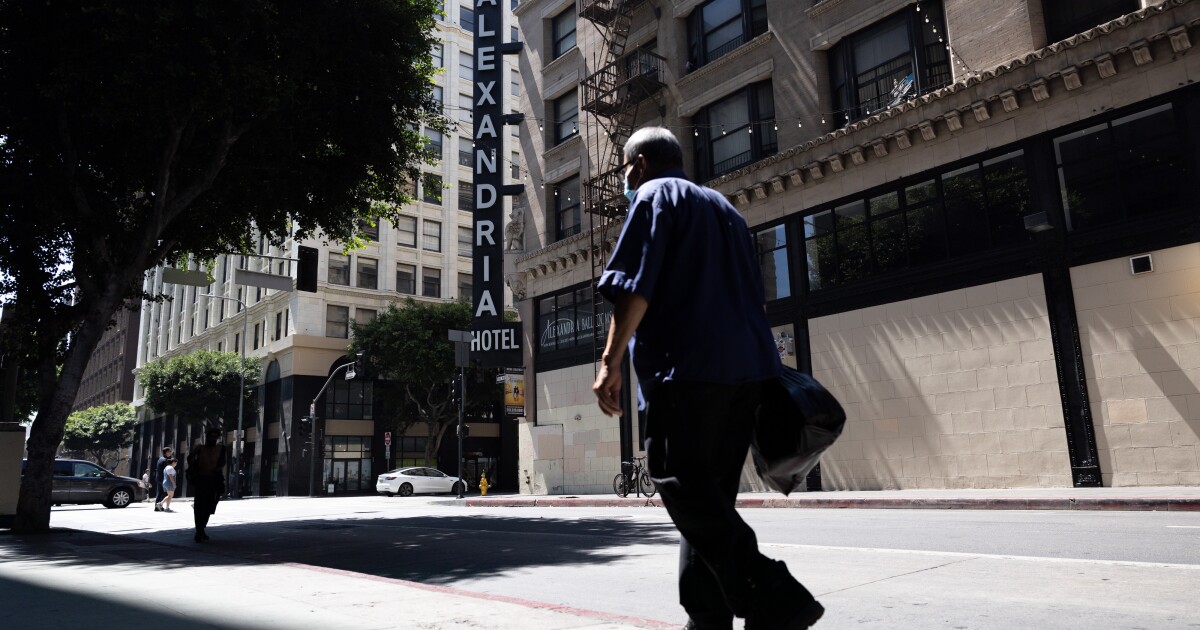Topline:
Why it matters: Downtown L.A. contributes large portions of tax revenue to the city, one downtown official said.
Why now: Improvement efforts have faced recent setbacks, such as immigration raids that have kept many people away.
The backstory: The area has seen success and struggle since post-World War II business flight and L.A.’s clearing of large parts of downtown in the 1960s and ‘70s.
Go deeper: Photos: DTLA bars and dives that are hanging on, and those that didn’t
Read on … for details of what downtown means to L.A.’s economy and culture.
Downtown L.A.’s up-and-down economic outlook in the past 20 years appeared to be up recently. New hotels have opened, along with some new entertainment venues, such as the Bellwether. New residential units also added to downtown L.A.’s vibrancy and helped businesses.
What does the future of Downtown LA business look like?
That’s good for the city as a whole, because downtown contributes a large portion of the city’s tax base.
“When you look at just three categories of downtown contributions to the tax base for the entire city’s unrestricted revenue: hotel tax, parking tax, [and] business tax, downtown contributes about 30% of those tax categories,” said Nella McCosker, president of L.A.’s Central City Association.
So it’s important, downtown business leaders and others say, for L.A. to come up with strategies to keep the area economically healthy. McCosker and others who appeared on LAist’s daily new program, AirTalk with Larry Mantle, recently gave some updates.
— Nella McCosker, president of L.A.’s Central City Association
Challenges remain
For most of its history, downtown L.A. has been an economic center that employed many people. McCosker said that before COVID lockdowns sent office workers home, nearly 50,000 public employees worked in downtown L.A.
“Those types of individuals sustained business’ ability to stay open for lunch and have the higher foot traffic that we see Monday through Friday, 9 to 5,” she said. But many haven’t returned full-time.

Office workers haven’t returned to downtown at pre-COVID levels, one expert says.
Samanta Helou Hernandez
/
LAist
)
Two recent examples of hard times downtown: the announcement that Cole’s, at Sixth and Main streets, would soon stop slinging French dips and drinks; and the impending closure of the nearly century-old Mayan theater, with its eclectic architecture and legendary nightlife.
Meanwhile, recent protests, unrest, curfews and fears about federal agents have been among the factors leading some Angelenos to avoid unnecessary trips downtown.
Cole’s announced in early July that its final day serving French dips, pickled eggs and strong drinks would be Aug. 3.
Courtesy Pouring With Heart
)
“That can have a cascading effect to a number of businesses that are already vulnerable,” economist Kevin Klowden said.
McCosker highlighted Mayor Karen Bass’s efforts to clear downtown homeless encampments and help people find housing. But it’s unclear, McCosker added, whether these efforts are having a positive effect on downtown’s economy.

